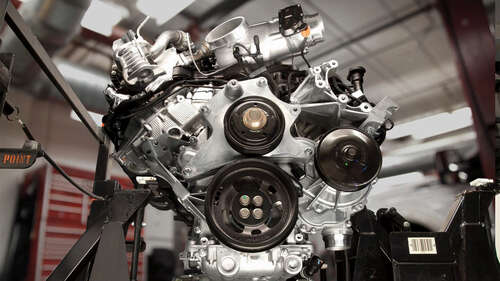
The difference in the noise levels of diesel and gasoline engines comes down to the specific differences in their operation and combustion processes. Diesel engines, for example, rely on compression ignition — a process where air is compressed until it reaches a high temperature before the diesel fuel is injected into the combustion chamber. The compressed air is so hot that it ignites spontaneously without using spark plugs, contributing to the engine’s loud noise.
Diesel engines produce a larger explosion during the combustion process due to the composition of diesel fuel, and how it ignites. Diesel fuel molecules are larger and denser and contain more energy per volume than gasoline. When these larger molecules combust under high pressure, they create a bigger, louder explosion. A gasoline engine, on the other hand, only combusts when it is sparked — with a spark plug being used to ignite a premixed air-fuel mixture — resulting in a smoother, quieter combustion process. Diesel engines also tend to have noisier operations because they use rugged, heavy-duty components designed to withstand the high pressures generated during combustion.
Advances in diesel technology have helped to mitigate this, with refined injection systems and noise-dampening materials making what you’d hear today much quieter than what you’d hear even a decade ago. Still, the different combustion methods mean that diesel engines are still generally louder than gasoline engines. That said, noise level shouldn’t be a deciding factor when deciding whether a diesel vs. gasoline engine better meets your needs.

